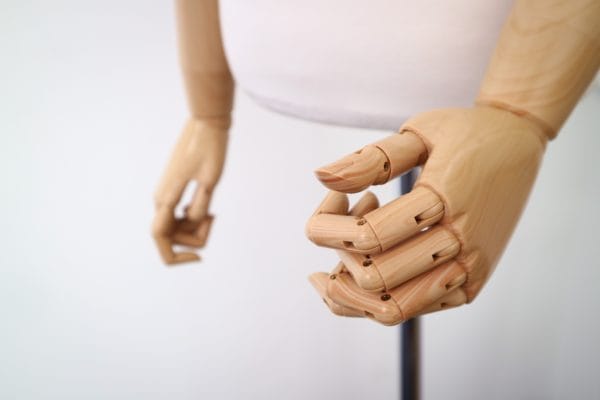Whether it is the pain caused by a broken leg, a stomach ache due to food poisoning or adrenaline in response seeing something frightening, the body is responding to an imbalance and signaling that something needs correcting in order to keep you safe.
Pain is a motivator – it is built into our intrinsic nature as a way to encourage us to seek help and resolve a variety of internal conditions that our brain may deem dangerous[i].
Neuroplasticity is the brain’s natural ability to adapt and physically change its structure in response to repeated function. This incredible trait is responsible our ability to learn and adapt to new situations and experiences. Mostly, this is very beneficial. However, the brain cells that produce pain are also capable of training themselves to better respond to threat to the point of hypersensitivity [ii].
When the brain has processed a large number of pain inducing signals for an extended period of time, it may become over-responsive and continue firing these pain signals in the absence of any danger.
This continued firing is one of the underlying causes of chronic pain[iii]: pain that extends and persists beyond the average healing time of most medical conditions (usually three to six months). Chronic pain is experienced by one in five Australians[iv], and in addition to changes in the nervous system, can also arise from genetic predisposition or acute pain episodes.
The brain regulates pain based on factors that are often difficult or impractical to control, if able to be controlled at all. It has handled by a part of the brain cannot be easily overruled by other thought areas, and as such, it is often immune to our reasoning or logic[v]. You cannot, therefore, simply tell someone that his or her pain is not real, and will them to think the pain away.
Specialist Physician Dr Christian Rowan has been practicing for over ten years, and emphasizes that despite pain originating in the mind, you must ensure that you are never reducing a person’s experience of chronic pain to only being in their thoughts. “You must provide a person with an adequate set of tools to recover from their current experience. The pain is very real to them. “
“How you feel pain is influenced by your genetic makeup, emotions, personality, and lifestyle. It is also influenced by past experience.[vi]” Dr Rowan says that “it makes sense, therefore, that we address all contributing factors to chronic pain through a multi-modal approach. This is often a combination of prescription medications, lifestyle changes and psychological techniques.”
Prescription medication
Pain relief medications are often the first technique in relieving chronic pain, and many medical professionals will monitor medications closely. Dr Rowan highlights that “pain relief medications are particularly vulnerable to the development of drug dependency and addiction. This is because they are very effective, and provide almost immediate relief.”
He also explains that people experiencing chronic pain are usually under extreme stress and emotional pressure. In light of a reduced emotional and physical capacity, other techniques may seem too difficult to undertake in the moment, whereas taking medication requires little effort. This may cause people to become reliant on medication as their only form of relief, potentially driving both a physical and/or psychological dependency.
“The best way a person can approach chronic pain while avoiding the dangers of drug dependency is to engage in multiple pain relief techniques, focusing on both the body and the mind,” Dr Rowan suggests.
Deep breathing, mindfulness and meditation
Research has long reported the benefits of deep and controlled breathing on both mental and physical health. This is one reason why the technique is deeply embedded in many other practices, such as mindfulness and meditation.
Peter Hayton, Senior Psychologist at The Banyans Health and Wellness praises the benefits of deep breathing as part of relieving chronic pain. “Many people may find meditation and mindfulness extremely difficult, and deep breathing is often a good thing for people to focus on in order to calm their thoughts,” he says. “These techniques are great distractions when the pain seems unbearable, and you need to redirect your mind towards something more positive.” Breathing exercises have long been a part of emotional coping strategies across many cultures.
Pay attention to your emotional state
Our bodies are particularly responsive to feelings of fear and anxiety, especially in the context of pain aggravation[vii]. A person who is confident and happy is less likely to amplify dangerous signals compared to someone who is stressed, anxious and miserable.
“Journalling is an excellent technique to check in with yourself emotionally,” Peter recommends. He suggests writing a sentence each day about something you are grateful for, or reflecting on the goals you achieved despite experiencing chronic pain. “It might as big as a full day at work, or as simple as spending quality time with your children. When you live with chronic pain, it is important to celebrate your success in each day.”
Peter also suggests that “if writing does not come naturally to you, reading a little bit each day or listening to a podcast can be a great way of reflecting. Cynthia Morten has a lovely series of books that encourage emotional fitness, with a few words one day at a time.”
Light physical exercise
Yoga is an excellent technique for incorporating physical exercise into your routine, without applying strenuous pressure to your body. It also incorporates controlled breathing, meditation and reflection. For more reasons why yoga can be extremely valuable in your recovery journey, read more here. Peter highlights the “importance of creating a balanced exercise program that considers your injuries, rather than simply exercising when you feel like it.” It is important that you do not over do it while you are feeling well, but maintain a sustainable exercise program.
It is important that you do not aggravate your injury by pushing yourself beyond your limits. The Banyans Health and Wellness ensures that guests experiencing chronic pain exercise under the guidance of an exercise physiologist, qualified personal trainer and physiotherapist.
Be realistic
Dr Rowan, the Specialist Pain Physician at The Banyans, reminds people that even though chronic pain is an invisible illness, it is not pretend. “People experiencing chronic pain do have limitations because of their pain. It is real, and needs to be treated accordingly.” He encourages people to be realistic about how much they can and cannot do, and to treat themselves with care.
For many people experiencing chronic pain, it can be difficult to feel supported and understood by loved ones and health professionals. As such, it is tempting to try and explain how intense the pain is by relating it to over-dramatic analogies. These “kinds of descriptions can exacerbate the neurological end of the pain problem[viii]”, and do not help align you towards a more positive mental state. Discuss with your health professional about some alternative ways of quantifying and/or explaining your pain to loved ones.
When viewed all together, it may seem like chronic pain is a complex problem that requires many techniques before a solution can be found. This is true – it is a complex problem. However, with the right team of medical, emotional and social support, recovery is always possible.
The Banyans Health and Wellness offers a comprehensive, biopsychosocial program for people experiencing chronic pain. Our residential program is completely tailored for each individual, and is able to accommodate guests specific pain management needs. If you think this program may be beneficial for yourself or someone you care about, please contact us for a non-obligatory, private discussion on 1300 BANYAN (1300 226 926). Alternatively, you can submit an online enquiry here.
[i] Ingraham, P. (2018). Pain Is Weird: A Volatile, Misleading Sensation. [online] www.painscience.com. Available at: https://www.painscience.com/articles/pain-is-weird.php [Accessed 10 Apr. 2018].
[ii] Harvard University (2016). 6 Ways to Use Your Mind to Control Pain. [online] Harvard Health. Available at: https://www.health.harvard.edu/mind-and-mood/6-ways-to-use-your-mind-to-control-pain [Accessed 10 Apr. 2018].
[iii] Ingraham, P. (2018).
[iv] Stanton, T. (2016). 5 common myths about chronic pain. [online] ABC News. Available at: http://www.abc.net.au/news/health/2016-08-16/myths-about-chronic-pain/7704554 [Accessed 6 Apr. 2018].
[v] Ingraham, P. (2018).
[vi] Harvard University (2016).
[vii] Ingraham, P. (2018).
[viii] As above.




